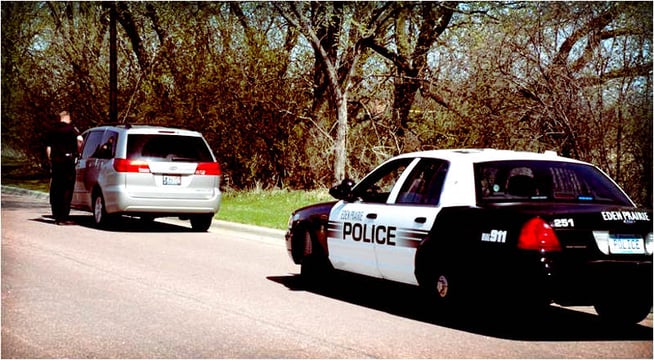We all know there are “duty to inform” states and then there are gray areas inbetween. But where does a passenger fall in on this? In this article, we’ll discuss some tips and strategies that may help you walk yourself or another through a similar situation.
But first, ask yourself a series of questions. If you don’t know the answers to these questions, find them.
1. What’s The Definition Of “Duty To Inform” For The State?
In Alaska, for instance, you have an absolute duty to inform. That means if a police officer approaches you, you have to tell him you are carrying a concealed firearm on you. There’s no wiggle room.
If you’re in Texas and walking down the street minding your own business and a police officer waves, you don’t have to say a thing. It’s only when that police officer asks for your ID that you need to tell him you have a concealed carry firearm.
Example: Illinois
“When stopped by a police officer, including traffic
stops, the licensee must disclose to the officer that
he or she is in possession of a concealed firearm,
present the license to the officer upon his or her
request and disclose the location of the firearm.”
How do you find out that meaning? Look it up. You can usually find the answers either through the website of the state police of the state you’re in or you can just call them and ask.
2. Are You Open Carrying Or Concealed Carrying?
If the officer sees you have a firearm in the vehicle with you, he’s going to ask if you have a concealed carry permit – unless you’re in a state that doesn’t require a concealed carry permit to carry in a vehicle.
If the officer can see you have a firearm, it’s his prerogative to ask.* And if he asks, you absolutely have a duty to provide proof of your concealed carry permit.
*That’s true unless you’re in a state in which you are required to duly inform him before he asks.
In states like North Carolina, it’s always a good idea to inform if you’re the passenger in a vehicle and you have a firearm on you – concealed or otherwise.
3. Do You Have Reciprocity In The State You’re Carrying In?
Because you’re a responsible concealed carrier, you’ve already done all the research necessary to know the states in which your concealed carry permit has reciprocity. And you obviously wouldn’t be carrying a concealed carry firearm in a state that strictly prohibits that.
Once you know the answers to these three questions, you know the correct course of action.
- If you have a duty to inform regardless of whether you’re a driver or a passenger, inform law enforcement immediately.
- If asked for your ID, a good tip is to always hand over your concealed carry permit or license alongside that ID.
- If asked the location of your concealed carry firearm, disclose it.
Never remove or brandish your concealed carry firearm and always follow the lawful commands of a police officer or law enforcement agent when it is within their legal right to request said information.
DISCLAIMER: This is not bonafide legal advice and should not be interpreted as such. You, the holder of the concealed carry permit and the firearm, bear full legal culpability for your actions and conduct.
If you’re the driver and your passenger has a concealed carry firearm on him and he’s taking a nap in the backseat and you get pulled over – wake him up. If you find it’s hard to keep track of all the laws for all the states you cross over (or even your own), print out some laminated index cards with those laws on them and keep them handy in the vehicle. In that case, you can also pass them off to your napping concealed carry companion and give him a heads up in the event he gets pulled over.
Look out for your fellow concealed carrier but more importantly – whether you’re the driver or the passenger – always know where you stand with the law of the land you’re in.












![[CCW IN ACTION] Attempted Robbers Held At Gunpoint By Good Samaritan](https://imagedelivery.net/sbm_lYeJbALkepJgtmRD5w/concealednation.org/2016/10/houston-tx-auto-zone.jpg/w=728,h=381)

